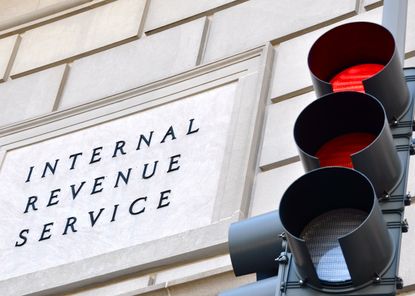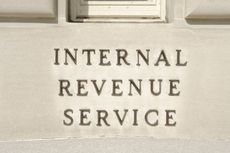What's Happening With the Employee Retention Credit and the IRS?
Fraud involving the employee retention tax credit has received much attention lately from the IRS and Congress. What does that mean for your business?


In a recent announcement, the IRS revealed ongoing efforts to tackle erroneous Employee Retention Tax Credit (ERC) claims. The agency has protected over $1 billion in revenue in six months by increasing enforcement surrounding questionable ERC claims driven by aggressive and misleading marketing.
IRS Commissioner Danny Werfel highlighted the agency’s commitment to safeguarding small businesses against widespread abuse of the ERC program, saying in a release, “We are encouraged by the results so far of our initiatives designed to help misled businesses, and the IRS will continue our broader compliance work given the aggressive marketing we’ve seen with this credit.”
According to the IRS, its Criminal Investigation division is reviewing an additional $3 billion in ERC claims.

Sign up for Kiplinger’s Free E-Newsletters
Profit and prosper with the best of expert advice on investing, taxes, retirement, personal finance and more - straight to your e-mail.
Profit and prosper with the best of expert advice - straight to your e-mail.
Employee retention credit deadline
As reasons for its success, the IRS points to several initiatives implemented since last fall, when it imposed a processing moratorium on new ERC claims.
For example, the IRS launched an ERC Voluntary Disclosure Program (VDP) that allowed taxpayers to correct their erroneous claims without additional penalties or interest. The VDP allowed employers to voluntarily disclose erroneous ERC claims and repay the credits received, with a potential 20% discount.
- The IRS says the VDP has generated over $225 million from more than 500 taxpayers, with additional submissions still under review.
- The deadline for this program was March 22, 2024.
- However, the IRS says it may reopen the VDP in the future, depending on what happens in the U.S. Congress regarding the statute of limitations for ERC claims. (More on that below.)
Another initiative, the ongoing withdrawal process for unprocessed ERC claims, has resulted in entities withdrawing $251 million in potentially false ERC claims. This process enables businesses to retract claims that the IRS has not yet processed to reduce the risk of recapture and associated penalties.
- Over 1 million withdrawal claims are currently pending, according to the IRS.
- Failure to rectify errors may result in recapture of the ERC, along with penalties and interest.
ERC audits. The IRS has identified over 22,000 improper claims through examinations, amounting to $572 million in assessments. These findings underscore the agency's efforts to scrutinize ERC claims. Additionally, the agency says thousands of audits are underway, as are investigations into abusive promoters.
Continued enforcement. While the IRS has made progress in the ERC disclosure program, the agency remains focused on potential fraudulent retention credit claims. The IRS is particularly concerned about ERC promoters spreading false information that could lead businesses to apply for credits they are not eligible for.
In addition to recapturing funds, the IRS is pursuing criminal charges against promoters and preparers engaging in fraudulent ERC practices. Kiplinger highlighted a case where the U.S. Department of Justice arrested a New Jersey tax preparer for allegedly seeking more than $124 million from the IRS. The multimillions came from filings of over 1,000 false tax forms claiming the employee retention tax credit.
The agency has also already sent more than 12,000 letters to entities recapturing previously paid ERC claims. According to the IRS, these businesses owe 100% of the ERC paid to them, plus backdated penalties and interest.
ERC moratorium
Meanwhile, a moratorium on processing new ERC claims remains in effect, allowing the IRS to review existing claims.
- The agency’s current focus is on claims from the 2021 tax year. The IRS says compliance activities for 2020 claims will end after Tax Day this year, April 15.
- If the agency resumes processing new claims, it will do so with enhanced scrutiny and risk-analysis measures to ensure compliance.
However, as Kiplinger has reported, bipartisan tax legislation (passed by the U.S. House of Representatives in January but currently stalled in the U.S. Senate) could end the ERC. Eliminating the tax credit would offset proposed tax cuts for families and businesses in the proposed tax package.
“The IRS continues to closely monitor discussions in Congress regarding ERC and the need to extend by statute critical tools to protect against improper claims,” Werfel said in a statement regarding the pending legislation.
ERC tax credit status: What you can do
For businesses potentially misled by ERC promoters, the IRS offers resources to verify eligibility and navigate the program's complexities. Tools on its website, like the ERC Eligibility Checklist and FAQs, provide insights into eligibility criteria. The agency also lists common warning signs that you may be dealing with “unscrupulous promoters” of the employee retention tax credit.
Overall, to avoid potential tax penalties and legal repercussions with the ERC, businesses should exercise due diligence, consult trusted tax professionals, and ensure compliance with program guidelines.
Related
- ERTC Moratorium: New Claims Processing on Hold at the IRS
- Can You Withdraw or Repay Your ERC Claim?
- New Tax Credits in Bipartisan Tax Package Could Benefit Families, Businesses

As the senior tax editor at Kiplinger.com, Kelley R. Taylor simplifies federal and state tax information, news, and developments to help empower readers. Kelley has over two decades of experience advising on and covering education, law, finance, and tax as a corporate attorney and business journalist.
-
 Strategies to Optimize Your Social Security Benefits
Strategies to Optimize Your Social Security BenefitsTo maximize what you can collect, it’s crucial to know when you can file, how delaying filing affects your checks and the income limit if you’re still working.
By Jason “JB” Beckett Published
-
 Don’t Forget to Update Beneficiaries After a Gray Divorce
Don’t Forget to Update Beneficiaries After a Gray DivorceSome states automatically revoke a former spouse as a beneficiary on some accounts. Waivers can be used, too. Best not to leave it up to your state, though.
By Andrew Hatherley, CDFA®, CRPC® Published
-
 IRS Warning: Beware of Smishing and 'Helper' Tax Scams
IRS Warning: Beware of Smishing and 'Helper' Tax ScamsScams Tax season is a time to look out for email and text message scams.
By Kelley R. Taylor Last updated
-
 Should You Let the IRS Do Your Taxes?
Should You Let the IRS Do Your Taxes?Tax Filing The new IRS Direct File program is now open to more taxpayers.
By Kelley R. Taylor Last updated
-
 Is the IRS Waiving Your Back Tax Penalties?
Is the IRS Waiving Your Back Tax Penalties?Tax Relief The IRS is waiving penalties for nearly $1 billion in back taxes owed during the pandemic. Are you eligible?
By Kelley R. Taylor Last updated
-
 Time to Act on These End-of-Year Tax Planning Tips: Tax Letter
Time to Act on These End-of-Year Tax Planning Tips: Tax LetterTax Letter With a short time left before 2023 comes to a close, tax planning is all-important. Here are some areas to focus on.
By Joy Taylor Last updated
-
 You May Have to Put Catch-Up Contributions in a Roth 401(k): That's Not a Bad Idea
You May Have to Put Catch-Up Contributions in a Roth 401(k): That's Not a Bad IdeaRoth 401(k) High earners will be required to put their catch-up contributions in a Roth 401(k).
By Sandra Block Published
-
 Can You Withdraw or Repay Your ERC Claim?
Can You Withdraw or Repay Your ERC Claim?Tax Credits The IRS says certain businesses can withdraw potentially fraudulent employee retention tax credit claims.
By Katelyn Washington Last updated
-
 A Dozen States Involved in IRS Direct File Pilot Program
A Dozen States Involved in IRS Direct File Pilot ProgramTax Filing The IRS is piloting a free direct file program, but not all taxpayers can use it right away.
By Katelyn Washington Last updated
-
 Five Tax Breaks for Paying Your Student Loan
Five Tax Breaks for Paying Your Student LoanTax Letter After a three-year pause, student loan payments have resumed, putting a dent in people's wallets. But there are some tax breaks that can help.
By Joy Taylor Published